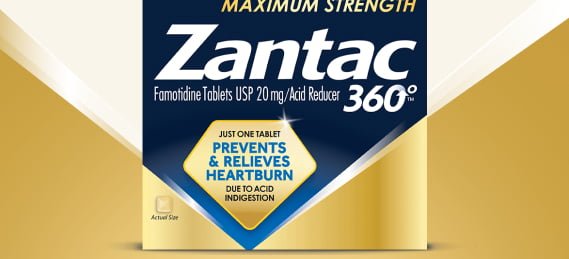Zantac
Zantac Lawsuit
A Zantac lawsuit is a legal claim filed by people who took Zantac with NDMA-contaminated ranitidine and later developed cancer. In August 2022, generic manufacturers agreed to a more than $500,000 Zantac settlement a week before the first lawsuit was set to go to trial.
Why Were Zantac Lawsuits Being Filed?
People who took Zantac made with ranitidine and developed cancer filed lawsuits after manufacturers issued ranitidine and Zantac recalls for the potential risk of cancer. FDA found Zantac’s active ingredient ranitidine contained N-Nitrosodimethylamine (‘NDMA’) — a probable human carcinogen.
The FDA told all manufacturers to stop selling Zantac made with ranitidine in the United States in April 2020 because NDMA contamination can increase over time. The longer the drug sits on the shelf, the greater the amount of NDMA in the drug and the FDA doesn’t know how long NDMA has been in Zantac. Sanofi’s new drug, Zantac 360 made with famotidine is not a part of the recalls or lawsuits.
In December 2022, a judge dismissed thousands of Zantac cases because they claimed there wasn’t enough evidence. Plaintiffs plan to appeal, but this could affect whether or not attorneys will still accept Zantac cases.
Zantac (ranitidine) lawsuits claimed that: Lawsuits claimed Zantac’s design is defective because its active ingredient, ranitidine, is an unstable molecule. The Zantac drug label failed to properly warn the public about the risk of cancer
Which Cancers Were Named in Zantac Lawsuits?
People who have taken Zantac and filed lawsuits reported a wide variety of cancers linked to the drug and NDMA.
Many doctors who diagnosed people with cancer after taking Zantac said they had no family history or genetic markers for cancer, according to Zantac lawyers. Instead, doctors told patients it was caused by something from their environment, which could include NDMA contamination.
Cancers that qualified for Zantac lawsuits include:
Bladder
Gastric/Stomach
Esophageal
Liver
Pancreatic
Of the cancers linked to Zantac, bladder cancer has the strongest connection. If you developed one of the above cancers after taking Zantac between January 2000 and present, make sure you contact an attorney to see if you qualify to file a lawsuit.
Other health issues in addition to cancer may be claimed in lawsuits. Make sure you tell your attorney about any other health problems.
Other Health Issues That May Appear with a Zantac Cancer Diagnosis
Doctors who diagnosed people with cancer after taking Zantac also diagnosed them with primary pulmonary hypertension (PPH) and Crohn’s disease.
Other health conditions associated with Zantac use included in lawsuits include: Primary Pulmonary Hypertension (PPH) is a rare lung disorder that causes high blood pressure in the lungs. It happens when the blood vessels in the lungs narrow and raise the pressure in the pulmonary artery above normal levels.
Crohn’s disease is a type of inflammatory bowel disease. It causes the digestive tract to become inflamed and this causes severe diarrhea, abdominal pain, cramps and weight loss.
Who Qualified for a Zantac Lawsuit?
People who filed Zantac lawsuits took brand-name Zantac and had to meet several criteria to qualify to file a lawsuit. Generic ranitidine was not included in lawsuits.
Those who qualified for a Zantac lawsuit satisfied several conditions: Have taken brand-name Zantac made with ranitidine for at least one year before being diagnosed with cancer.
Been diagnosed with bladder, stomach, esophageal, liver or pancreatic cancer. Be younger than 20 years of age between the last time they took Zantac and their first cancer diagnosis.
Be younger than 89 years old at the time of their first cancer diagnosis. Have used Zantac at least once a week for one year or longer.
Lawyers are the only ones who can properly evaluate a claim, and they can help gather medical records and evidence to build a case.
Plaintiffs Claimed Defendants Failed to Warn About Zantac Cancer Risk
The main claim in Zantac lawsuits was that defendants failed to properly warn the public that Zantac’s active ingredient, ranitidine, is unstable and can form NDMA in the stomach leading to an increased cancer risk. Plaintiffs demand to be compensated for injuries and pain and suffering.
Get Help now!
If you or a loved one have been injured, you may be eligible for a lawsuit. A lawsuit can help recover damages for medical costs, pain and suffering, and more.
Contact us today for a free, no-obligation legal review.

